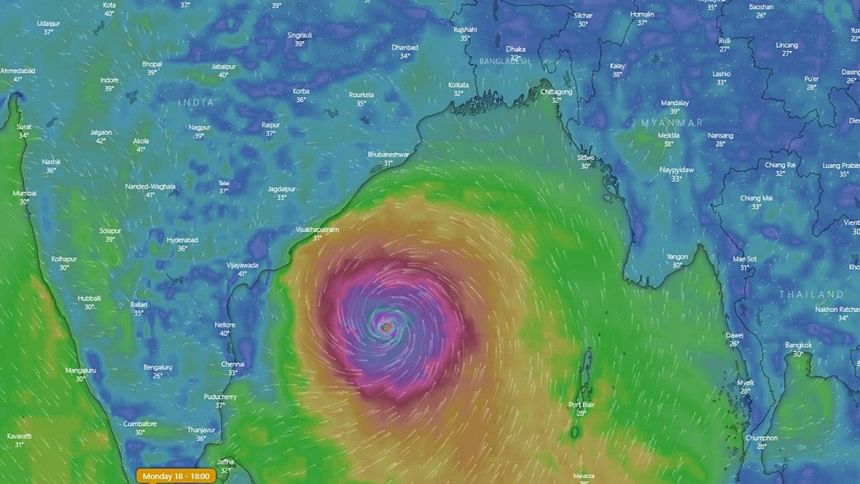Cyclone Amphan during the pandemic

The evacuation of thousands of people in response to the warning of cyclone Amphan hitting Bangladesh's coastal districts is no doubt a huge challenge in the middle of the coronavirus pandemic. It means thousands of villagers will have to go to cyclone shelters that usually become extremely crowded during such disaster management. So how will social distancing and hygiene practices crucial to stop the spread of the virus, be maintained in these shelters? This is what is worrying health and disaster management experts.
We welcome the government's endeavours to instruct local administration to increase the number of temporary shelters. Officials and volunteers are working to ensure that every school, college, and madrasa along the coast can be used as shelters during the cyclone. The government has given directives to ensure that social distancing is maintained and if anyone is sick or has a fever, they must be transported to the upazila health complex. However, in order to maintain social distancing, the government should identify and prepare all concrete structures available to use as temporary shelters.
Experts have given some important recommendations that must be heeded. The shelters must have masks, sanitisers and proper hand washing facilities with soap for everyone, and physical distancing must be maintained during evacuation and inside the shelters. The areas that will be hit by the cyclone have to be precisely identified to avoid unnecessary evacuation in areas that are not vulnerable. The risks of the spread of infections will be reduced if the people's stay at the shelters are shortened and there are fewer people there. Disaster management experts have also advised the government not to distribute food as this will lead to chaos and crowding. It is better if the people are asked to bring dry food, as they would probably have to be in the shelter for a few hours.
During last year's cyclone Bulbul, about 22 lakh people in 16 coastal districts were evacuated from their homes and taken to 5,670 permanent and temporary cyclone shelters. The challenges of preventing the virus from spreading inside shelters or during evacuation will be quite formidable.
At this time, we do not know how severe this cyclone will be. But being prepared is crucial to prevent the loss of life. Now, there is the extraordinary burden of the risk of the spread of the virus. The government must therefore act extraordinarily—making people aware of the need for hygiene practices and social distancing, and ensuring that they are adhered to every step of the way. Bangladesh has a commendable track record in disaster management. This time, we hope we can confront the double-edged sword of a cyclone and the spread of a virus with the same determination.

 For all latest news, follow The Daily Star's Google News channel.
For all latest news, follow The Daily Star's Google News channel. 



Comments